Confession: I struggle with how to talk about the topic of disabled children and puberty. I sometimes even wonder if I should. My disabled son is unable to give consent for me to tell his story and talk about the hard parts of being his mom. But his story and mine are permanently fused, so sharing his story is also sharing mine. And I will always do my best to honor his life and preserve his dignity with whatever I choose to share.
I do not assume my experiences of raising a disabled child are universal; these reflections are mine alone. However, I feel a void in the community of parents with older children with profound needs. I hope in some small way, my vulnerability will help another mother feel less alone.
His Story is My Story
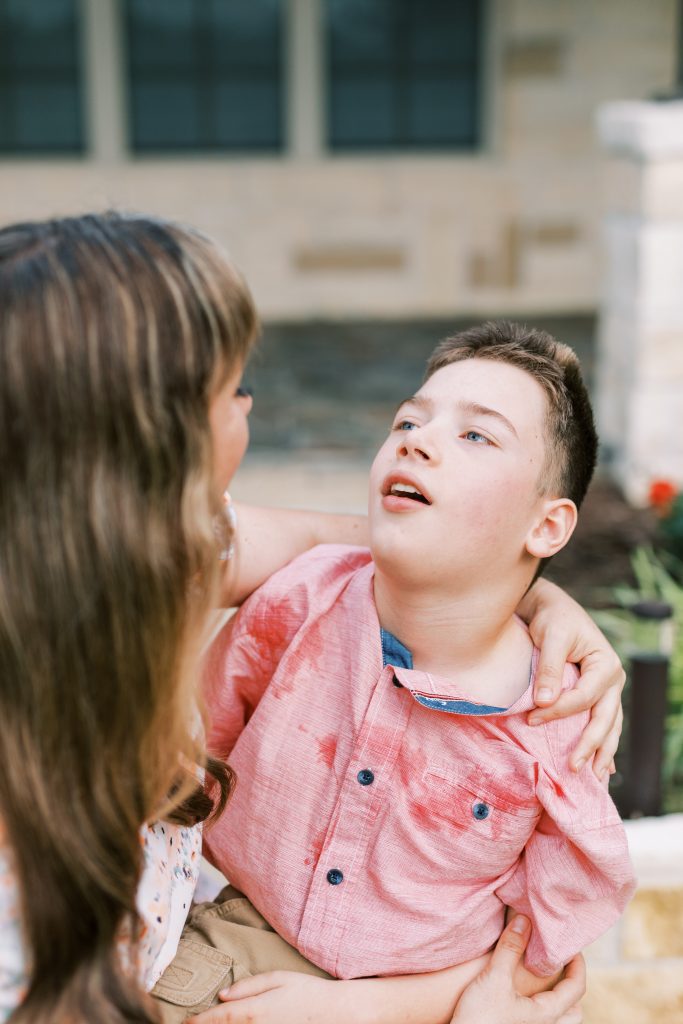
As children grow, there’s an expectation that their lives, and therefore their stories, become more and more disentangled with our own. Once children enter adolescence, it’s generally inappropriate to share too many specifics without their explicit consent. And yet, there’s comfort in knowing that however difficult this stage of development is, with its raging hormones, awkward bodies, emotional rollercoasters, and broken hearts, most of the struggles surrounding puberty and growing up are universal. And temporary.
But some children’s stories, including my son’s, will never be separate from the stories of their parents. My son has profound disabilities, requiring total physical care. As his body ages, grows and changes, his reliance on those of us who care for him remains the same.
His needs are equal to those of a tiny infant, yet his body is changing into that of a man.
Loneliness and Shame
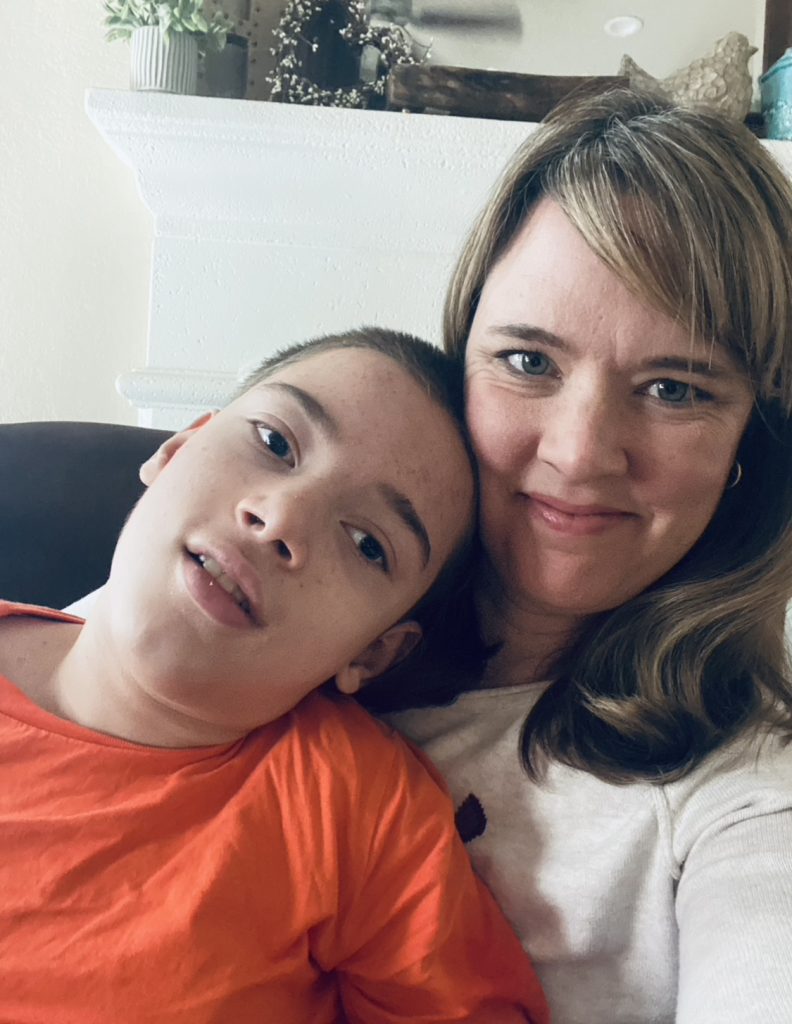 My son is eleven years old and in the thick of puberty. As with many children with neurological disorders, his body began changing earlier than most boys. And also unlike most boys, my son doesn’t have the privilege of privacy as his body goes through all these changes. Mercifully though, he doesn’t have the intellectual capabilities to feel shame or desire privacy about his body.
My son is eleven years old and in the thick of puberty. As with many children with neurological disorders, his body began changing earlier than most boys. And also unlike most boys, my son doesn’t have the privilege of privacy as his body goes through all these changes. Mercifully though, he doesn’t have the intellectual capabilities to feel shame or desire privacy about his body.
But as my son’s mother, I’ve had to confront and deal with MY own discomfort surrounding his changing body.
I’m caring for this man-child in the same ways now as when he was a 5-pound infant. I still change his soiled diapers and bathe him, making sure every inch of his body is clean. I still cradle him in my arms to comfort him. I still feed him around the clock in liquid ounces. And I still check on him at night to make sure he’s breathing.
I still, I still, I still…over a decade of mothering this precious boy whose basic needs never change. And up until recently, his body matched his needs – that of a large baby. But now, his body is changing so much, and so fast. It’s completely disorienting.
At times, I’ve felt crippling shame about my discomfort because this is my child and how dare I have these feelings?
We don’t talk enough about the brutality of this specific stage of mothering disabled children. About the ways our love for our children can completely undo us and rip our hearts, and expectations, to shreds. We don’t talk about the parts that almost make us feel like we’re drowning in our own shame. We don’t talk about the loneliness. We don’t want the thoughts and fears that flood our brains in the darkness of sleepless nights to ever be revealed in the light of day. And yet, paradoxically, we crave a community of mothers who will listen. Who will understand.
Where is My Community?
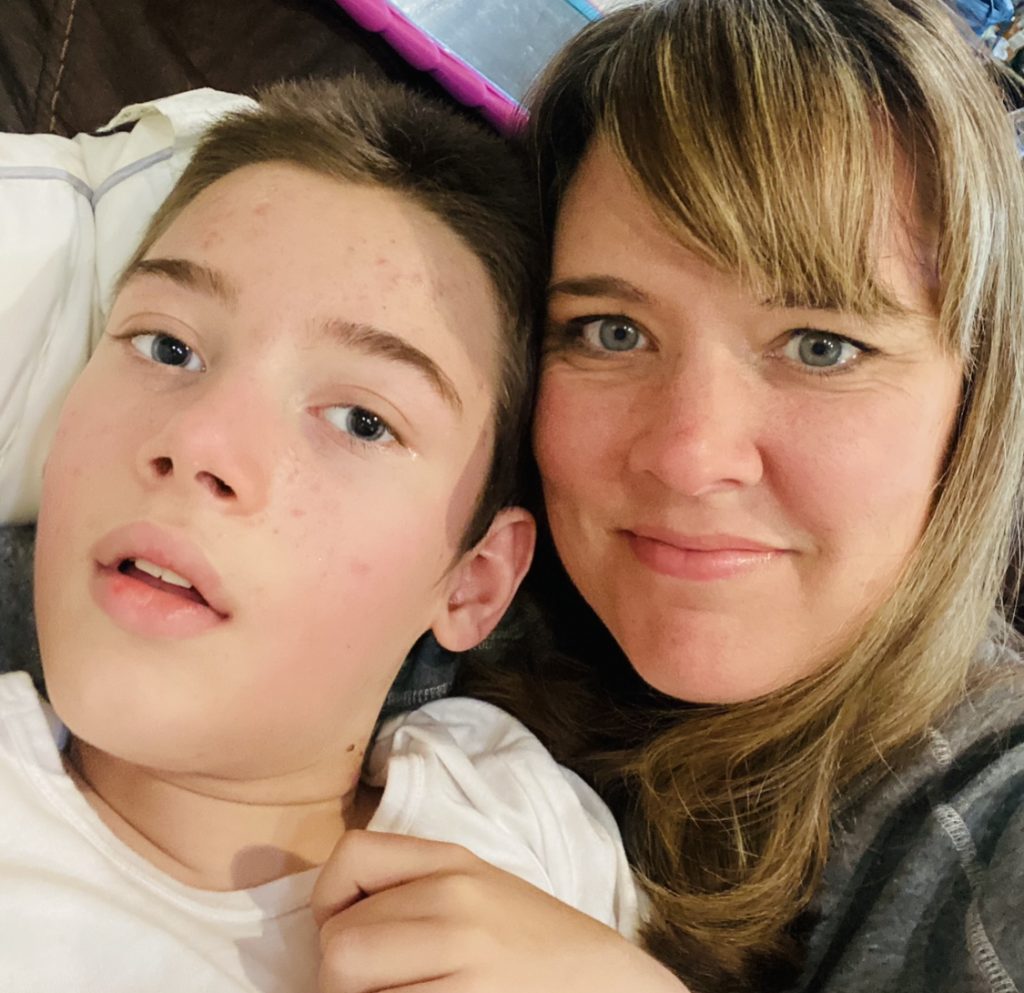 When I’ve searched support groups online for caregivers of older disabled children I’ve left saddened at best and terrified at worst. Because most of what I see are exhausted, burnt-out parents with a lot of resentment. Intellectually, I understand how one could get to that place, but I never ever want that to be me. And I have questions.
When I’ve searched support groups online for caregivers of older disabled children I’ve left saddened at best and terrified at worst. Because most of what I see are exhausted, burnt-out parents with a lot of resentment. Intellectually, I understand how one could get to that place, but I never ever want that to be me. And I have questions.
How do I protect myself from caregiver burnout when there is no end, other than tragedy, to my responsibilities for my son’s every need?
Where do I find other mothers who, like me, delight in their older disabled children and yet still struggle with aspects of parenting them?
What do I need to do now to prepare myself physically and emotionally for caring for a disabled man long past his teenage years?
Who do I turn to with practical questions about the logistics and specifics of puberty, and caring for a teenaged and eventually adult disabled body?
I’ve been writing and sharing long enough to know I am not the only one with these questions and fears surrounding disabled children and puberty. But for some reason, we’ve internalized the message that we’re not allowed to talk about these things once our children reach a certain age. And I suspect the loneliness of that message is slowly breaking us.
Breaking the Silence
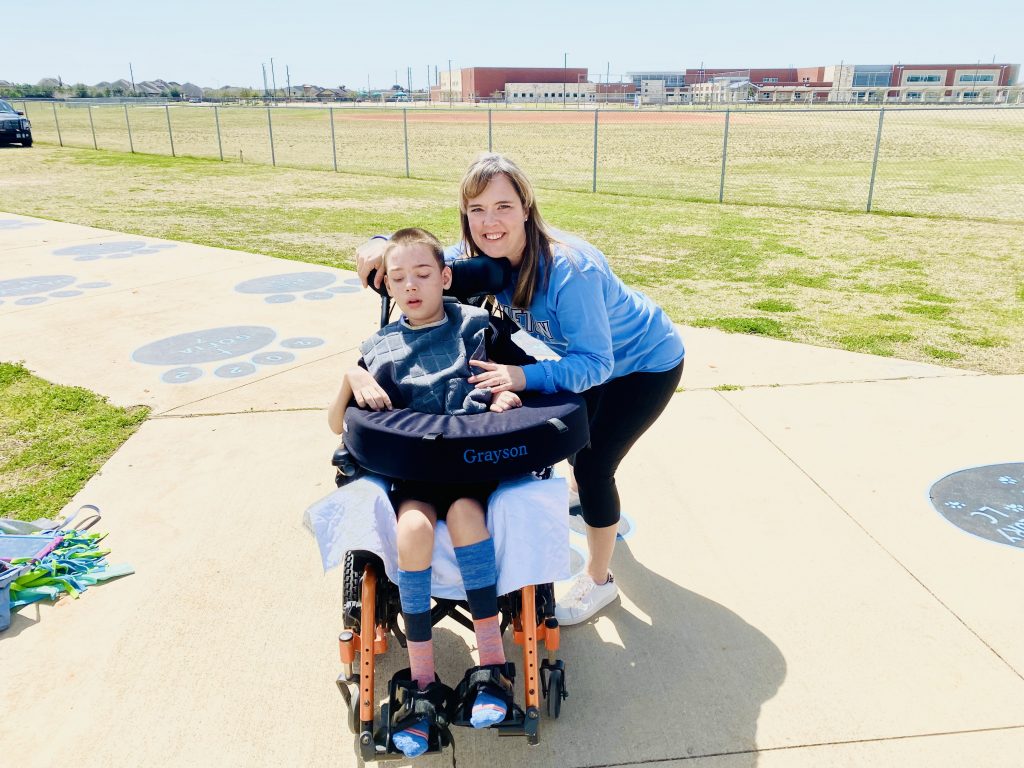 Today, I’m breaking the silence and doing my best to shut down any shame around talking about disabled children and puberty. And if you are a mother or caregiver to a disabled child, I hope you will do the same. The stakes are high on this one, as the weight of this particular responsibility is heavier than most.
Today, I’m breaking the silence and doing my best to shut down any shame around talking about disabled children and puberty. And if you are a mother or caregiver to a disabled child, I hope you will do the same. The stakes are high on this one, as the weight of this particular responsibility is heavier than most.
We need each other, and our precious children need us to be mentally healthy for them. So let’s move through our discomfort and start talking.








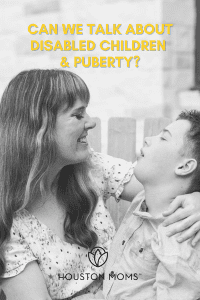





Thanks for sharing your struggles with us!!! And you are right we need to talk more about what is to raise a full grown infant, that’s how I refer to my 12 years old disabled daughter.
My son is 12 Almost 13 and we
Are going through all of this now. We have a small Facebook support group called Specialbilities – special needs support group. We have a private and public page because you know how some people act towards
Our children. Would love to be there when you need someone
My little man is 15. He will always be my baby in a man’s body. He brings me such joy and love! We struggle with puberty issues. He doesn’t understand why he needs to shut the door to go to the bathroom, have his diaper on before he runs through the house, and keep his hands off of his privates while in public.
I’m so glad you wrote this, Elizabeth. You did an incredible job honoring G’s dignity while also expressing your current reality and struggle.
Clara will soon be 10. We are nearing this same crossroads and I’d be lying if I said I wasn’t anxious about it. Caring for an almost ten year old infant is getting so much harder physically. Then add on puberty and I don’t even have words.
I’ll say, I want to be someone along with you that celebrates our kids and while freely expressing emotions along the way, refuses to give in to resentment, bitterness, and life long anger.
Proud of you.
You are not alone and I think about all these thinks very often when it comes to my 10 year old son. For example, for so long we’ve just “assumed” that my son only enjoys cartoons. Last week he really did not want to hold his head up to watch Spongebob. I happened to be watching a short video of Gordon Ramsay on one of the competitive home chef shows. I showed this to my son and he seemed to engage. I asked him, do you want to watch a cooking show? I said if you want to watch a cook show hold your head up. Well he started to pick his head up. So I took this as a que that he was telling me he’d rather watch Gordon Ramsay cuss out home cooks that Spongebob scream at Patrick. These moments are priceless in watching our kids grow up and communicate in the only way they are capable.